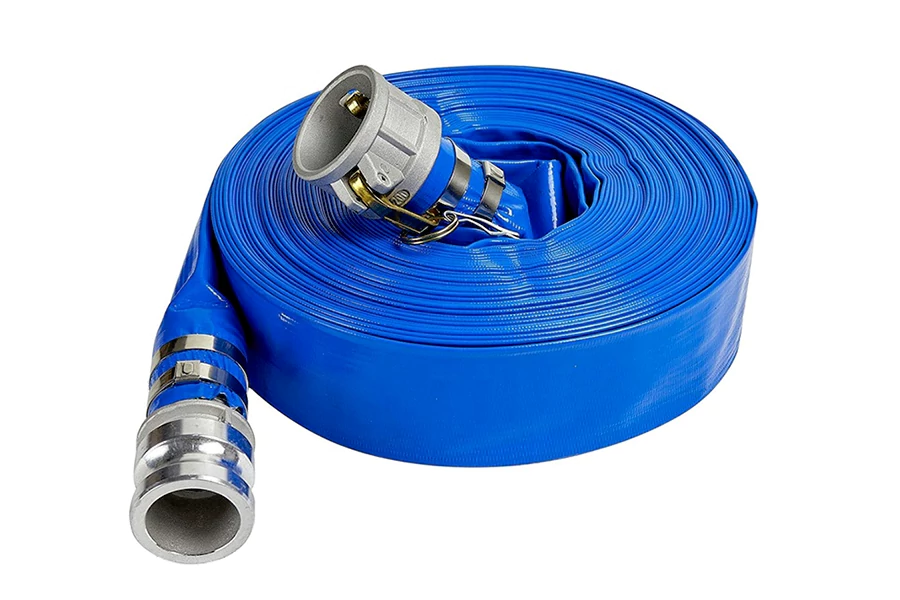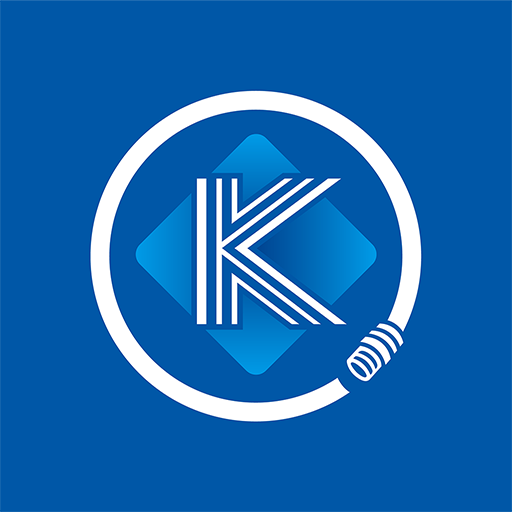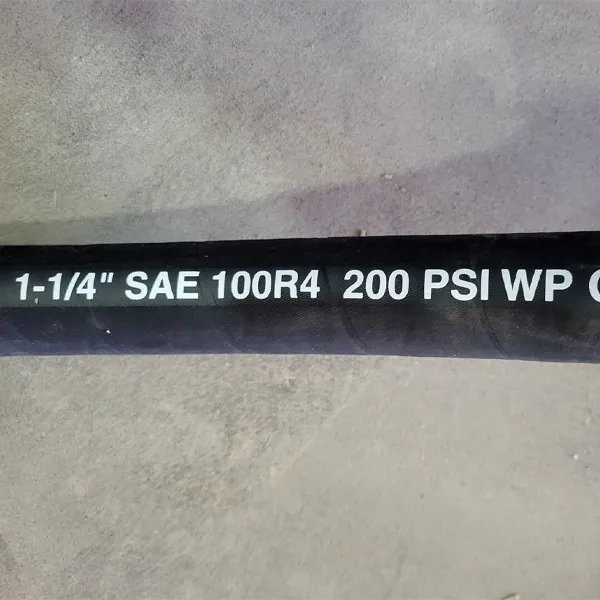Irrigation is essential to maintain healthy plants and crops. However, selecting the right irrigation system can be a challenging task. One crucial element of any irrigation system is the hose. When it comes to irrigation hoses, PVC flat hoses are becoming increasingly popular for their superior quality and versatility. In this article, we will explore ten reasons why PVC flat hoses are the best choice for irrigation.
PVC Flat Hose – An Overview
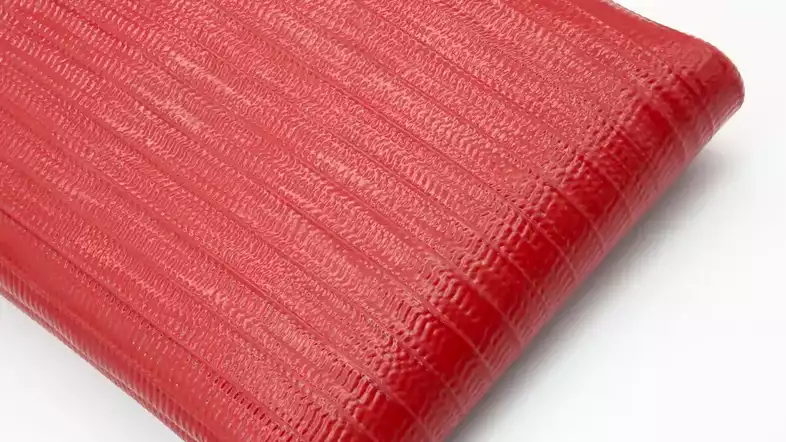
PVC flat hoses are manufactured using high-quality PVC materials, which makes them lightweight, flexible, and durable. PVC irrigation lay flat hose has a flat design, which makes them easy to store and transport. PVC flat hoses are available in different sizes and colors, making them versatile and suitable for various irrigation applications.
10 Reasons Why PVC Flat Hose is the Best Choice for Irrigation
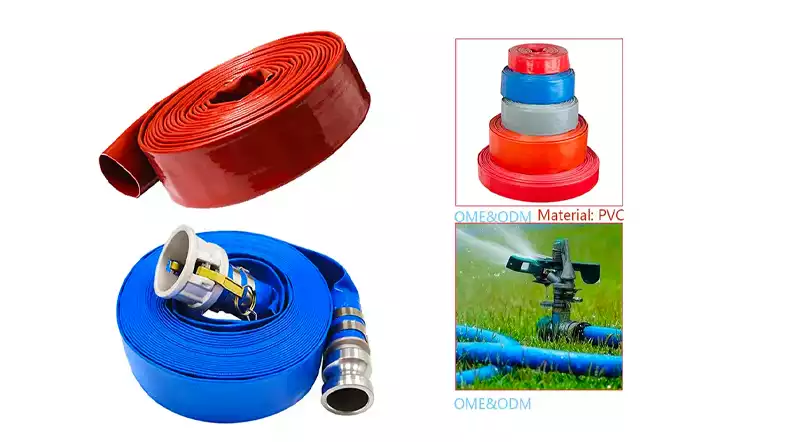
1. Lightweight and Flexible
PVC flat hoses are designed to be lightweight and flexible, which makes them easy to handle and maneuver. This is especially important for farmers and gardeners who need to move their hoses frequently to water different areas of their crops. The flat design of PVC hoses also makes them easy to store and transport, as they can be rolled up tightly and stored in small spaces.
2. Easy to Store and Transport
PVC flat hoses have a flat design, making them easy to store and transport. Unlike other types of hoses, PVC flat hoses do not take up much space, allowing you to store them in small storage areas. They are also easy to roll up and transport, making them an excellent choice for farmers and gardeners who need to move their irrigation systems from one place to another.
3. Durable and Long-Lasting
PVC lay flat hose pipe is made from high-quality materials that are durable and long-lasting. They are resistant to damage from exposure to the sun, rain, and other environmental factors, which makes them a reliable choice for irrigation. PVC hoses are also resistant to kinks, punctures, and leaks, ensuring that your water supply remains consistent and uninterrupted.
4. Resistant to Chemicals and UV Rays
PVC flat hoses are resistant to chemicals and UV rays, making them ideal for use in harsh weather conditions. They can withstand exposure to sunlight and other harsh weather elements without cracking, fading, or deteriorating. PVC flat hoses are also resistant to chemicals, making them suitable for use in chemical-intensive agricultural operations.
5. High Water Flow Capacity
PVC lay flat water discharge hose has a high water flow capacity, allowing them to deliver water to your crops and plants quickly and efficiently. They are ideal for use in areas with high water demand, where other types of hoses may not be able to keep up.
6. Suitable for All Irrigation Methods
PVC flat hoses are suitable for all types of irrigation methods, including drip irrigation, sprinkler irrigation, and surface irrigation. They can be used in a wide range of agricultural operations, making them an excellent choice for farmers and gardeners.
7. Low Maintenance
PVC flat hoses require minimal maintenance compared to other types of hoses. They do not require regular cleaning or lubrication, and they are not
8. Cost-Effective
PVC flat hoses are cost-effective compared to other types of hoses. They are affordable, making them an excellent choice for farmers and gardeners on a budget. PVC flat hoses also have a long lifespan, meaning you do not have to replace them frequently, saving you money in the long run.
9. Environmentally Friendly
PVC flat hoses are environmentally friendly as they do not contain harmful chemicals that can contaminate soil and water sources. They are also recyclable, reducing their environmental impact. PVC flat hoses are a sustainable choice for irrigation, allowing you to maintain healthy crops while also protecting the environment.
10. Versatile
PVC flat hoses are versatile and can be used for various purposes besides irrigation. They can be used for draining water from flooded areas, delivering water to livestock, and more. PVC flat hoses are also suitable for use in construction sites and industrial operations.
What Is the Difference Between PVC Flat Hoses and Other Types of Hoses?
One of the biggest differences is in their design. PVC flat hoses have a flat profile, which makes them lightweight, flexible, and easy to maneuver. This is in contrast to traditional round hoses, which are often bulky and difficult to move around. The flat design of PVC hoses also makes them easy to store and transport, as they can be rolled up tightly and stored in small spaces.
Another key difference is in their durability. PVC flat hoses are made from high-quality materials that are resistant to damage from exposure to the sun, rain, and other environmental factors. They are also resistant to kinks, punctures, and leaks, ensuring that your water supply remains consistent and uninterrupted. In contrast, other types of hoses may be more prone to damage, especially when exposed to harsh conditions.
PVC flat hoses also have a higher water flow capacity compared to other types of hoses. This means they can deliver water to your crops quickly and efficiently, ensuring they receive a consistent supply of water for growth and development. PVC hoses also have a smooth interior surface, which helps to reduce friction and increase water flow.
Additionally, PVC flat hoses are environmentally friendly, as they do not contain harmful chemicals that can contaminate soil and water sources. They are also recyclable, reducing their environmental impact. PVC flat hoses are a sustainable choice for irrigation, allowing you to maintain healthy crops while also protecting the environment.
PVC flat hoses offer several advantages over other types of hoses, including their lightweight and flexible design, durability, high water flow capacity, and environmentally friendly properties.
Can Pvc Flat Hoses Be Used With Chemicals?
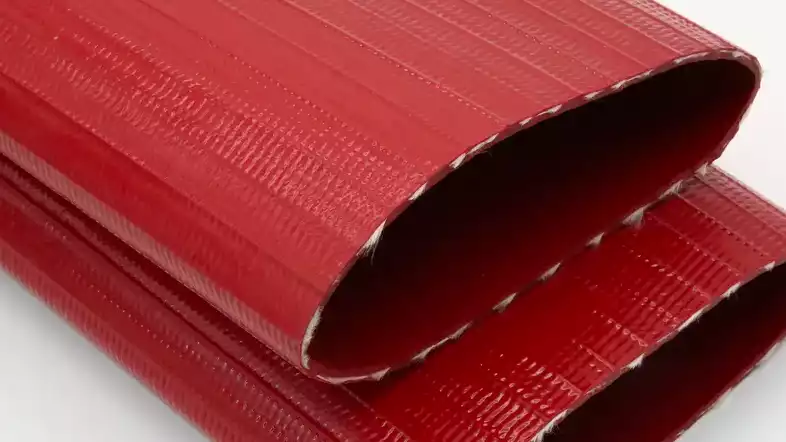
PVC flat hoses can be used with certain chemicals, but it depends on the specific chemicals and the intended use of the hose. PVC is a synthetic plastic material that is resistant to a wide range of chemicals, but not all chemicals are safe to use with PVC hoses.
If you plan to use PVC flat hoses with chemicals, it is important to check the manufacturer’s specifications to ensure that the hose is suitable for the chemicals you will be using. Some chemicals can degrade or weaken PVC over time, leading to leaks or even hose failure.
It is also important to properly clean and maintain your PVC flat hoses after using them with chemicals. Residual chemicals left in the hose can cause damage over time, so be sure to thoroughly rinse and dry the hose before storing it.
While PVC flat hoses can be used with certain chemicals, it is important to exercise caution and ensure that the hose is designed for the specific chemicals you will be using.
How Long Do PVC Flat Hoses Last?
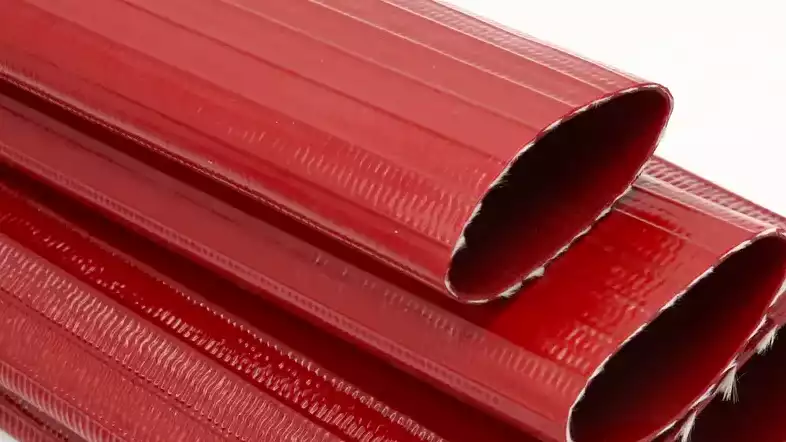
The lifespan of PVC flat hoses can vary depending on several factors, including the quality of the hose, the conditions in which it is used, and how well it is maintained. Generally, high-quality PVC flat hoses that are used and stored properly can last for several years.
One advantage of PVC flat hoses is their durability. They are resistant to kinks, punctures, and leaks, and are designed to withstand exposure to the sun, rain, and other environmental factors. This makes them a long-lasting choice for irrigation.
However, the lifespan of PVC flat hoses can be shortened if they are not properly maintained. For example, if they are left in the sun for extended periods of time or not properly drained and stored after use, they may become brittle and prone to cracking.
To maximize the lifespan of your PVC flat hoses, it is important to follow the manufacturer’s recommendations for use and storage. This may include draining the hose after use, storing it in a cool, dry place out of direct sunlight, and avoiding contact with sharp objects or rough surfaces.
PVC flat hoses are a durable and long-lasting choice for irrigation, provided they are used and maintained properly.
Are PVC Flat Hoses Environmentally Friendly?
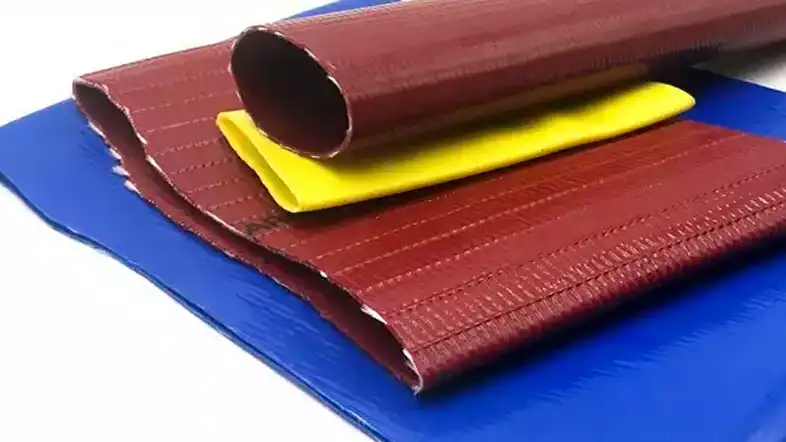
PVC flat hoses are generally considered to be an environmentally friendly option for irrigation. One reason for this is that PVC is a synthetic plastic material that is recyclable, reducing its impact on the environment. PVC is also resistant to degradation and is not biodegradable, which means it does not contribute to landfill waste.
Another factor that makes PVC flat hoses environmentally friendly is that they are designed to be durable and long-lasting. This means that they can be used for several years before needing to be replaced, reducing the amount of waste generated from hose disposal.
In addition, PVC flat hoses are free from harmful chemicals such as lead and phthalates, which can contaminate soil and water sources. This makes them a safer and more sustainable option for irrigation.
However, it is important to note that PVC production can be energy-intensive, and the disposal of PVC products can still have a negative impact on the environment if not done properly. It is important to properly dispose of PVC flat hoses at the end of their useful life and to recycle them whenever possible.
PVC flat hoses are a sustainable and environmentally friendly choice for irrigation, provided they are used and disposed of properly.
Can PVC Flat Hoses Be Used for Purposes Besides Irrigation?
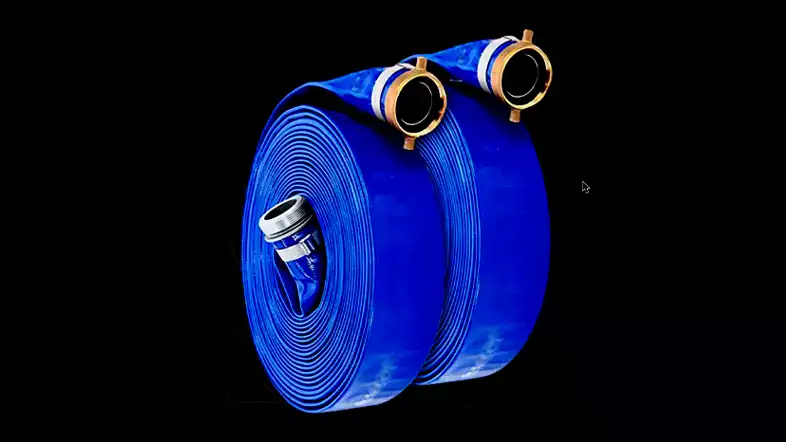
Conclusion
PVC flat hoses are the best choice for irrigation for various reasons. They are lightweight, flexible, and easy to store and transport, making them perfect for use in small gardens and farms. PVC flat hoses are also durable, resistant to chemicals and UV rays, and have a high water flow capacity. They are also cost-effective, environmentally friendly, and versatile, making them an excellent investment for any farmer or gardener.

